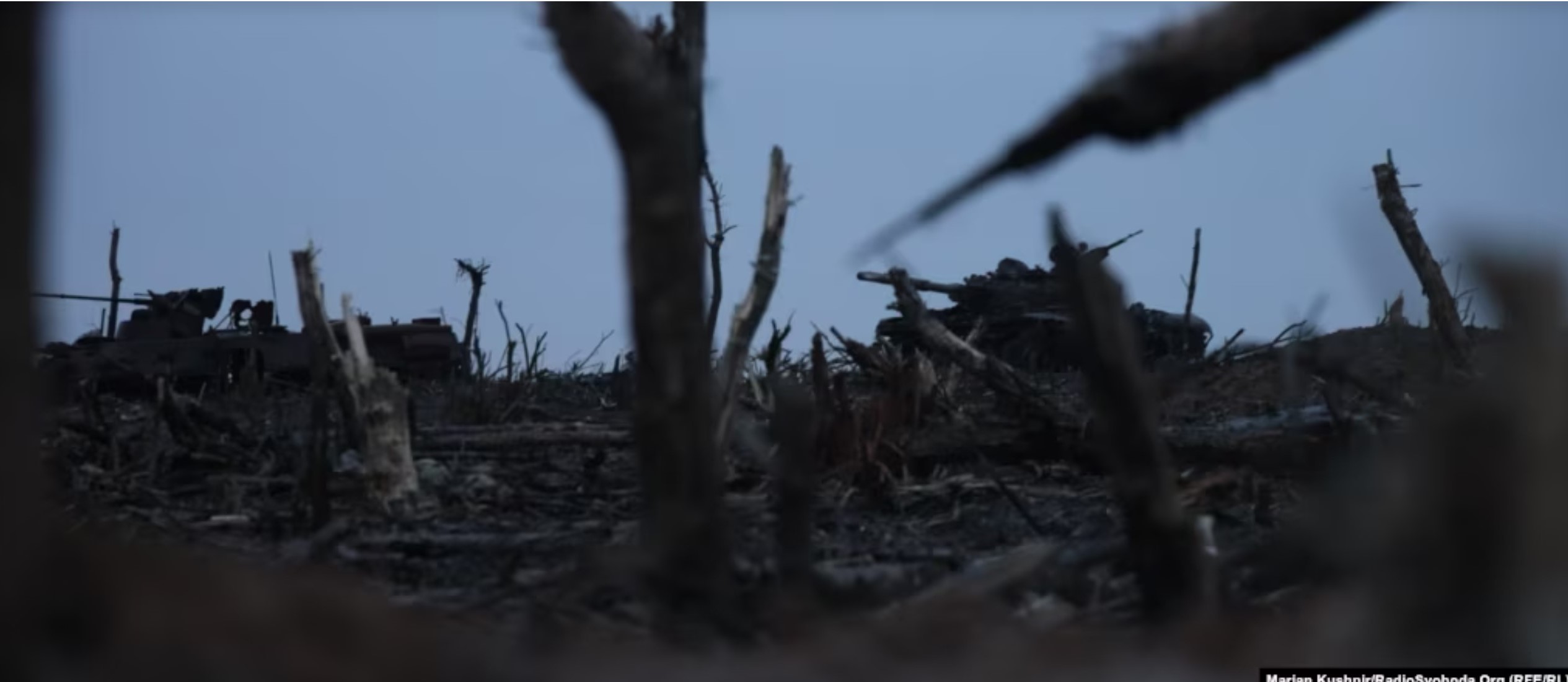Russia’s killings of Ukrainian prisoners of war are likely state-approved war crimes

It is a grave war crime to murder unarmed prisoners of war, one that the perpetrators would surely only commit if they felt certain of total impunity. Ukraine’s Prosecutor General’s Office believes that such certainty may derive from the support for such war crimes given by top Russian leadership.
On 25 February, the Prosecutor General’s Office posted new video footage, probably from a drone, which appears to show the execution of Ukrainian prisoners of war near Bakhmut (Donetsk oblast) the previous day. You can see, the report stresses, that the Ukrainian soldiers are surrendering, that their hands are in the air, that they are showing that they are unarmed and do not pose a threat. The exact figure is unclear, the report says, but it is likely that at least seven men were killed, rather than being taken prisoner, as required by the Geneva Convention.
This crime comes shortly after the believed execution of five or six wounded prisoners of war whom the Ukrainian Armed Forces had been unable to safely evacuate from near Avdiivka (Donetsk oblast). According to the 110th Mechanized Brigade, an agreement had been reached with the Russians that the men would be taken prisoner and given medical treatment. Instead. a video was posted on Russian Telegram channels, showing the bodies of at least five soldiers. Close relatives of three of the men recognized the bodies and also confirmed that the men were wounded and expected to be taken captive. This was the most horrific, but not the only war crime in the space of a week, with the Russians having seemingly killed two, perhaps three, POW near Robotyne (Zaporizhzhia oblast) and two Ukrainian POWs near Vesele (Donetsk oblast).
Radio Svoboda has spoken with Yury Bielousov, the head of the Prosecutor General’s Department on countering crimes committed during the armed conflict. He confirmed that his office has information about seven possible POW victims in the latest attack in Bakhmut district. He stressed, however, that the investigation is ongoing, and is made much more difficult by the fact that there is no access to the crime scenes. They have grounds for suspecting the involvement of a particular Russian unit, but will refrain from naming it until they are entirely certain.
Bielousov adds that such cases are not isolated, and that the Russians have been guilty of killing Ukrainian prisoners of war since the beginning of the full-scale invasion of Ukraine. There were such cases, for example, in both Chernihiv and Kharkiv oblasts in March 2022. In the Chernihiv case, a Russian has even been convicted and sentenced to life imprisonment over the killing of a POW.
Since November 2023, however, there has been a dramatic increase in such apparent killings of POWs, with the cases in quite different places. This, Bielousov says, indicates that it is , undoubtedly, Russian policy, supported by the top echelons of Russia’s armed forces. It is also significant that the videos are so often posted by Russians. “We view this as part of Russia’s policy with respect to Ukraine, on subjugating Ukraine. They use all possible methods, including psychological pressure. The publication of such videos is an attempt to demoralize Ukrainian soldiers, to weaken their resistance and to generally make it easier to subjugate Ukraine. This is once again evidence that it is a part of the Russians’ general plan of general and destruction of the Ukrainian people.”
It is simply impossible, he stresses, that the Russian military leadership are not aware of such killings. If they wanted to stop them, they could. “Yet they not only fail to prevent such practice. Judging by everything, they provide maximum support for them and probably even provide direct orders to carry out such acts.”
His department is, therefore, seeking to not only establish the direct perpetrators, but also those with the leadership echelons who are implicated in such war crimes. Bielousov stresses that they are not relying purely on such videos but looking for information from other sources. There would be maximum effort to undermine their evidence, and so they are scrupulously gathering as much proof as is possible. In a separate interview, Bielousov spoke of nine investigations under Article 438 of Ukraine’s Criminal Code (war crimes) with 45 Ukrainian prisoners of war believed to have been shot in cold blood.
Asked what, if anything, can be done to protect Ukrainian defenders who have been forced to surrender, Bielousov stressed the importance of international pressure. Russia is, however, brazen in violating the Geneva Conventions and other international law. Without political pressure, as well as prosecution of those implicated at all levels in such war crimes, it is hard to prevent the invaders from committing such atrocities.





